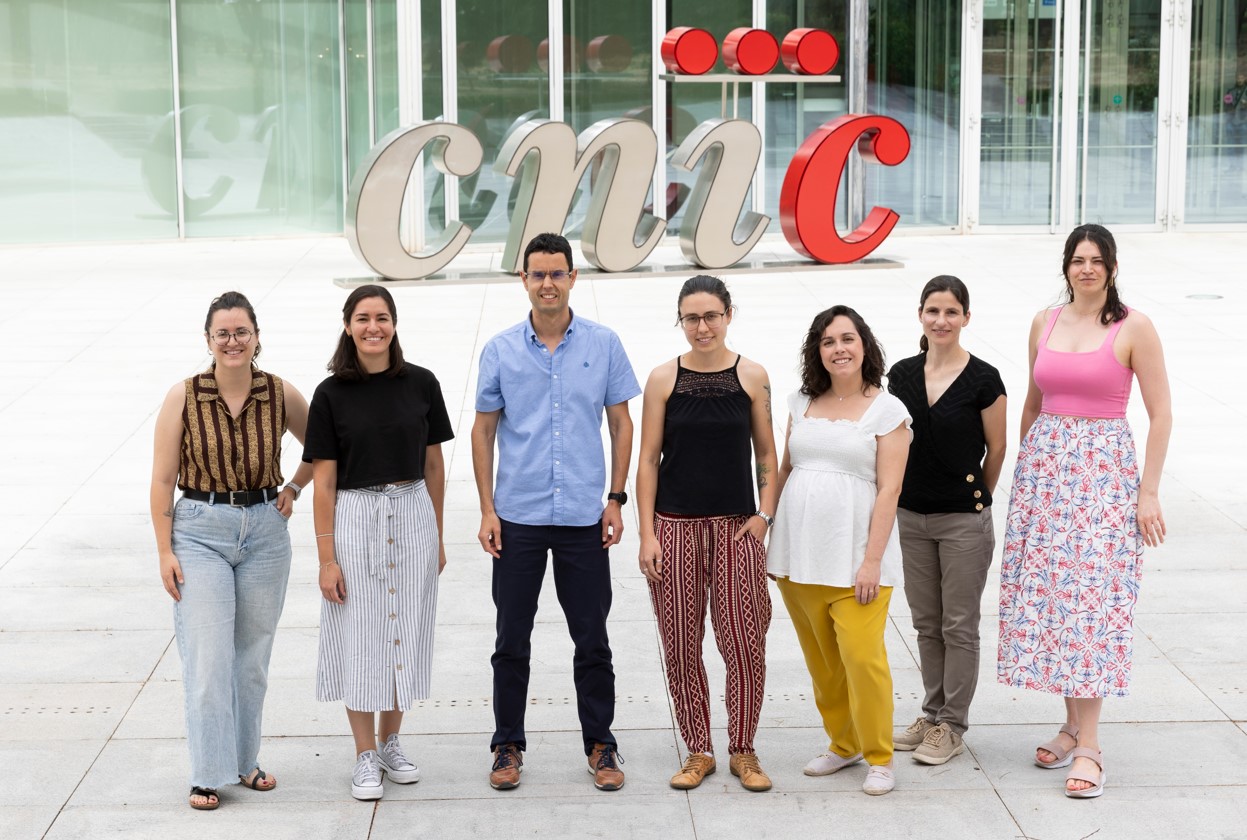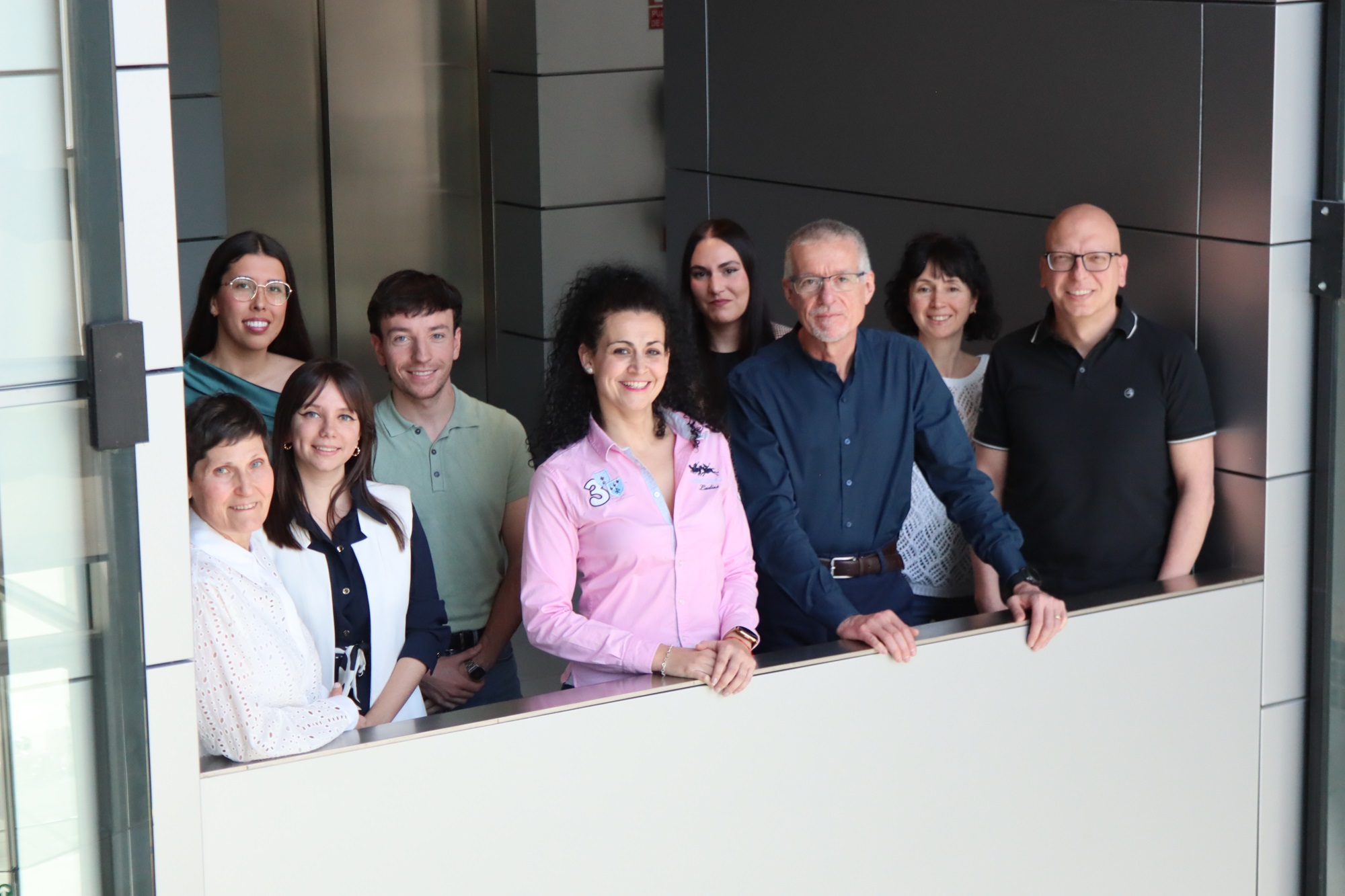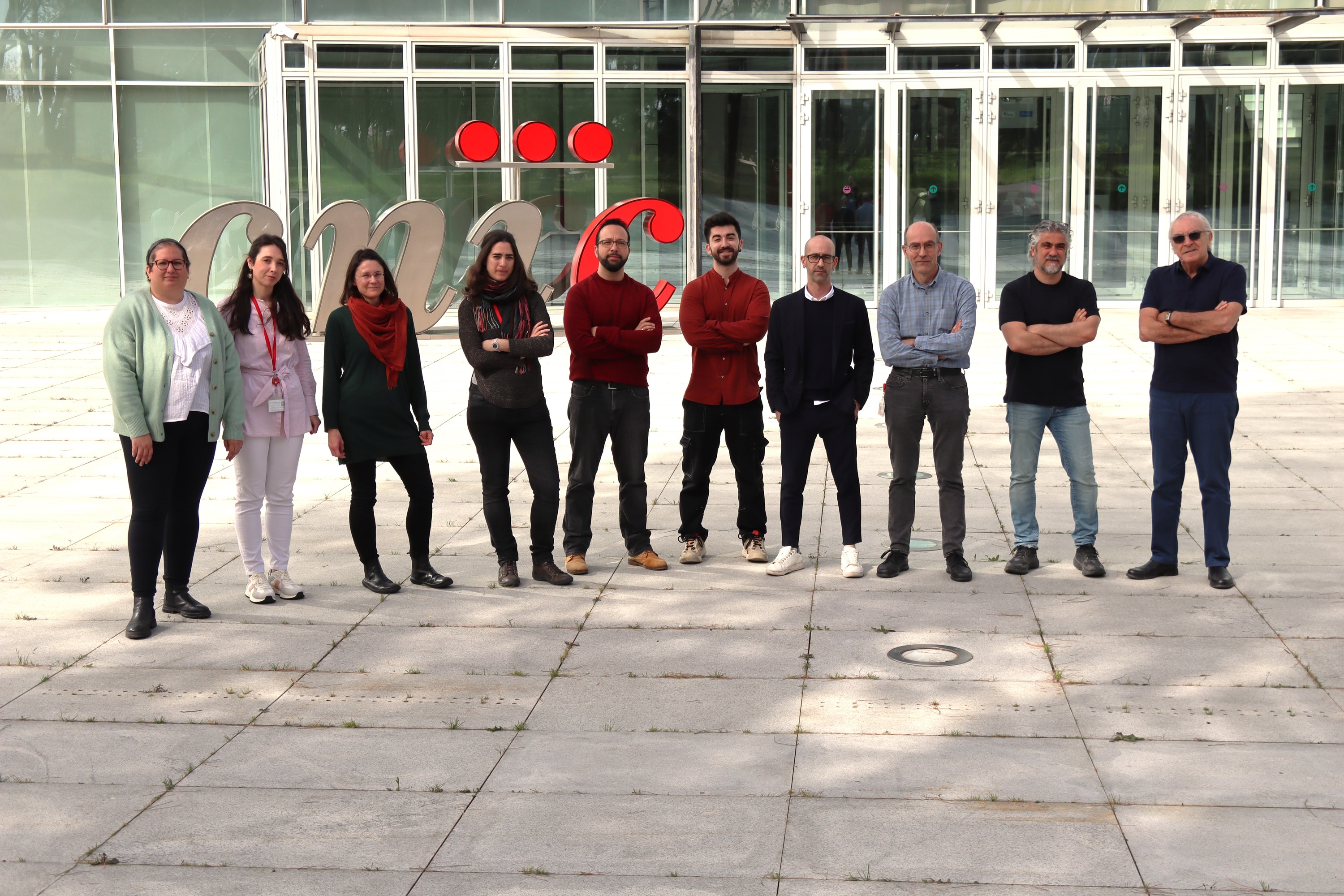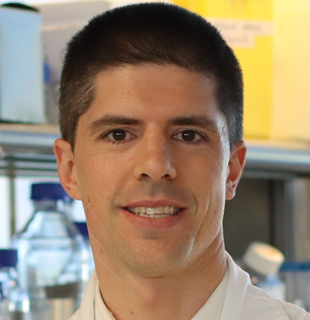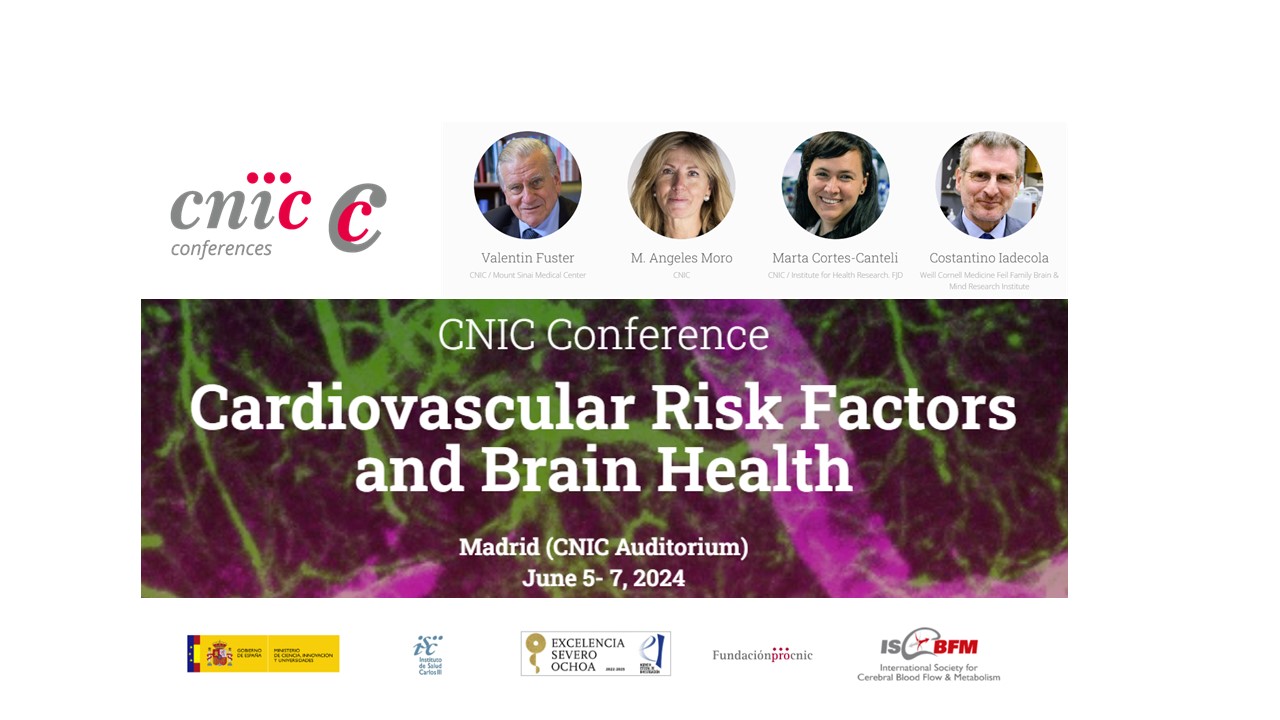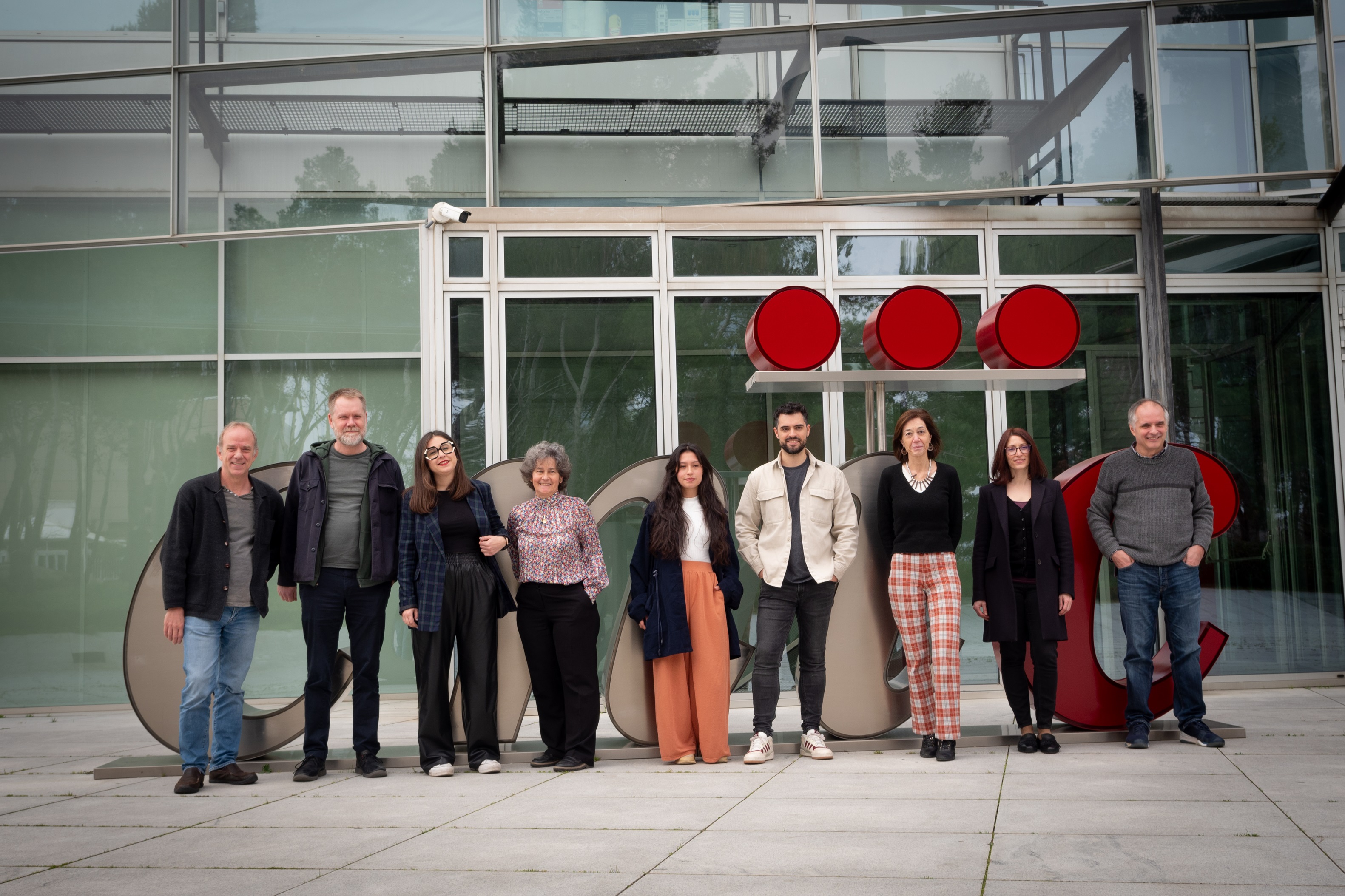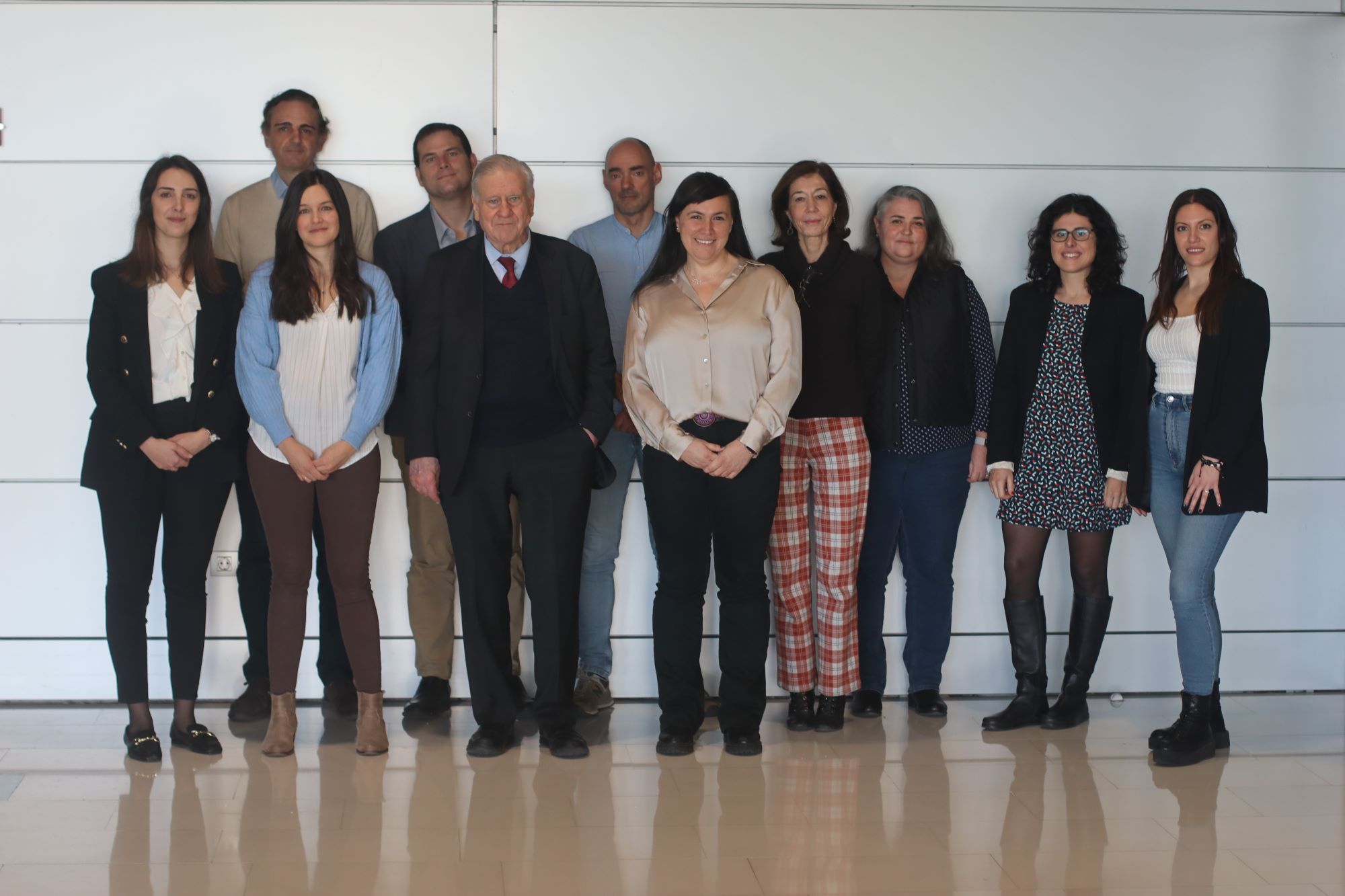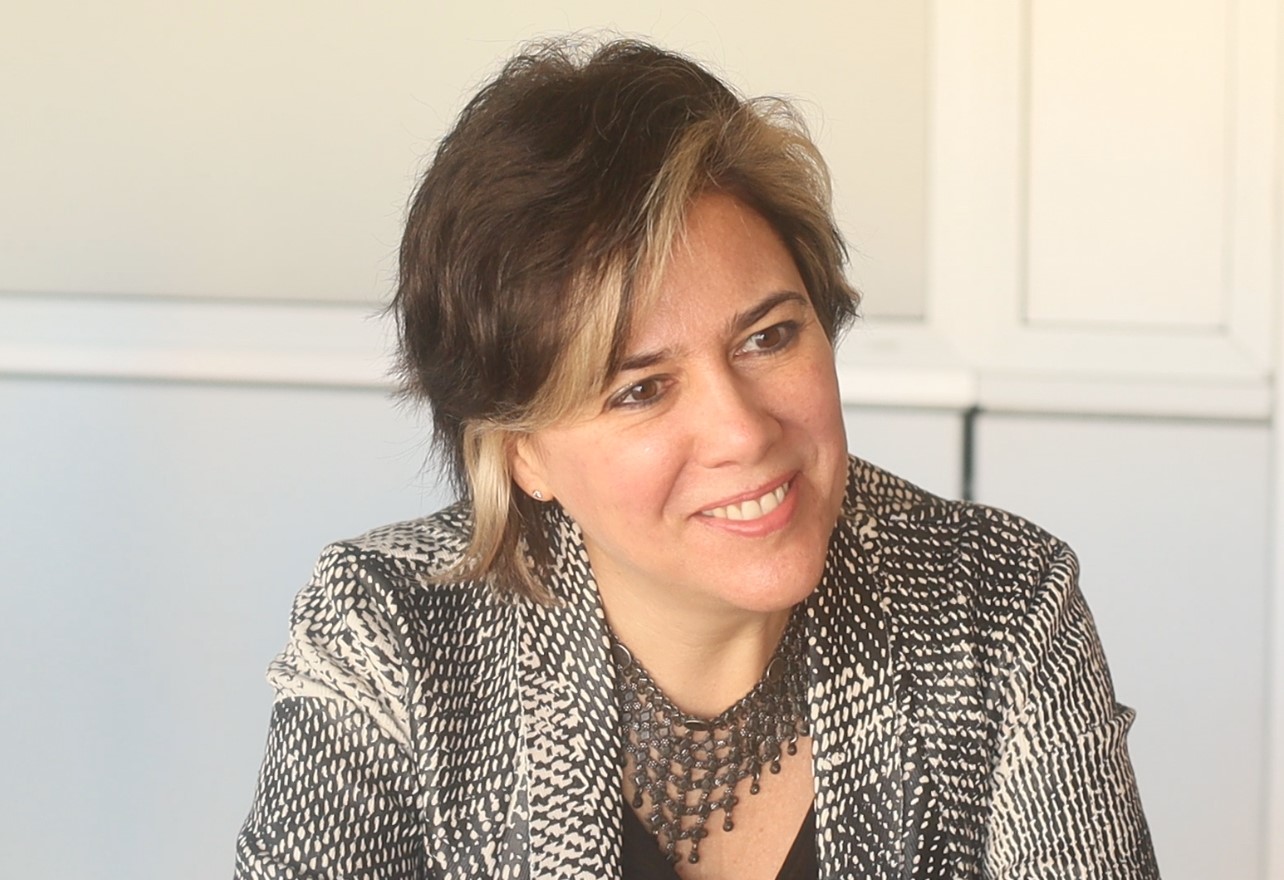News search
|
About the CNIC 11 Jun 2024 iSuRe-HadCre promises to become an essential tool for biomedical research using mouse models to modify and understand gene function |
|
About the CNIC 15 May 2024 Globally, cardiovascular diseases due to atherosclerosis – the build-up of plaque in arteries – are the leading cause of death. A new Danish-Spanish research collaboration aims to develop methods to detect atherosclerosis at earlier ages and encourage prevention. Denmark’s Novo Nordisk Foundation has granted up to EUR 23 million to cover the first 2.5 years of the REACT initiative. The initiative is expected to run for 8 years in total |
|
Research 19 Apr 2024 The elimination of progerin from vascular smooth muscle cells, but not from endothelial cells, prevents the atherosclerosis associated with Hutchinson-Gilford progeria syndrome (HGPS) |
|
Research 11 Apr 2024 CNIC researchers, led by Dr. José Jalife, have made a key discovery about cardiac arrhythmias in Andersen-Tawil syndrome (ATS) |
|
About the CNIC 15 Mar 2024 The award honours the quality and relevance of his research work in preventive medicine and on current challenges in the field of cardiology |
|
About the CNIC 9 Feb 2024 The National Center for Cardiovascular Research Carlos III (CNIC) is excited to announce the upcoming edition of the CNIC Conferences |
|
Research 1 Feb 2024 A study published in Nature Cardiovascular Research reveals smooth muscle-derived cells as a new target for reducing the size of atherosclerotic plaque. The results open up new avenues for the design of treatments to enhance the beneficial effect of cholesterol-lowering drugs |
|
Research 23 Jan 2024 The most potent genetic risk factor for Alzheimer disease, APOE4, is associated with an elevated risk of developing subclinical atherosclerosis in middle age, whereas the Alzheimer-protective variant of the same gene, APOE2, protects against subclinical atherosclerosis |
|
About the CNIC 19 Dec 2023 Dr. Carla Rothlin is Dorys McConnell Duberg Professor of Immunobiology and Professor of Pharmacology at the Yale School of Medicine, and co-leader of the Cancer Immunology Programme at Yale Cancer Centre. She studied biochemistry and pharmacology at the University of Buenos Aires, where she also undertook her postgraduate research under the direction of Dr. Ana Belén Elgoyhen, focussing on nicotinic receptors expressed in the inner ear. Later, she completed her doctorate and moved to San Diego to join Dr. Greg Lemke’s laboratory at the Salk Institute for Biological Studies. In 2009, Dr. Rothlin was named Assistant Professor in Immunobiology at Yale Medical School |
- 1 of 12
- next ›
